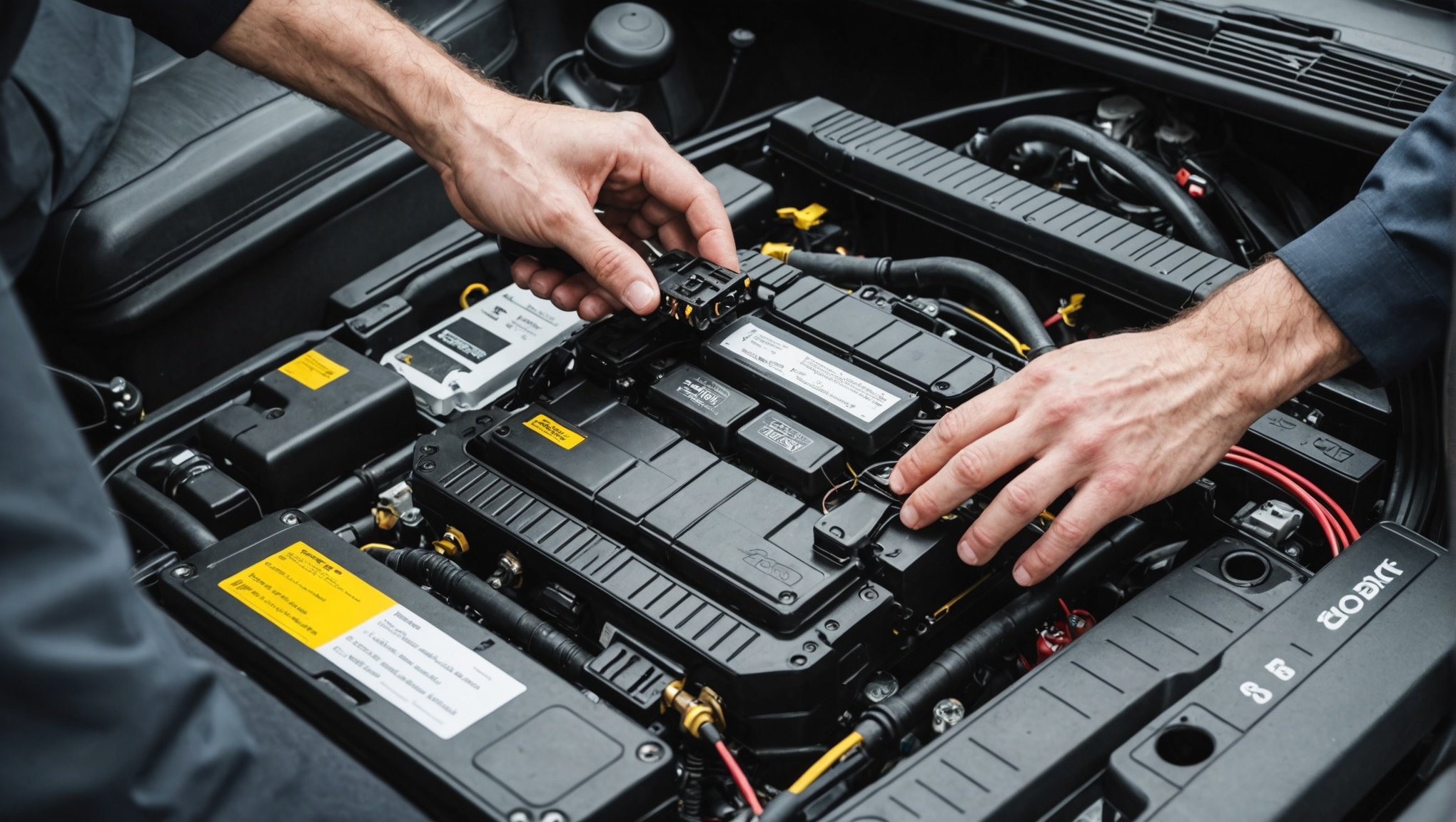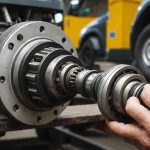The modern vehicle is a marvel of engineering, and much of this marvel can be attributed to the Electronic Control Unit (ECU). The ECU is the brain of your car, responsible for managing numerous functions from fuel injection to the anti-lock braking system. However, like any other component, it can encounter issues that need prompt attention. This article aims to provide you with a comprehensive guide on identifying and fixing common ECU issues in UK cars.
What is the ECU and Why is it Critical?
Understanding the role of the ECU in your car is crucial for diagnosing and fixing any issues. The ECU is essentially the car’s brain, responsible for monitoring and controlling a variety of systems within the vehicle. This includes everything from engine performance to transmission functions. Because the ECU handles critical operations, a malfunction can result in severe consequences, affecting driving safety and fuel efficiency.
Have you seen this : How do you prepare a UK car for participation in a track day event?
Functions of the ECU
The ECU uses a complex network of sensors to gather data from various parts of the car. It processes this information to execute tasks such as regulating air-fuel mixture, ignition timing, and emissions. When the ECU is functioning correctly, it ensures that your vehicle operates smoothly and efficiently. However, when it malfunctions, the driving experience can be significantly impacted.
Importance of ECU Health
Maintaining a healthy ECU is essential for the optimal performance of your car. An issue with the ECU can manifest in various ways, including poor fuel efficiency, difficulty in starting the vehicle, and even sudden engine shutdowns. Consequently, understanding how to identify and address these problems can save you from costly repairs and ensure your car runs efficiently.
In parallel : What are the best practices for detailing a car’s exterior for a concours d’elegance in the UK?
Common Signs of ECU Problems
Identifying ECU issues may seem daunting, but several tell-tale signs can help you diagnose the problem early. Ensure you pay attention to these symptoms to avoid more severe complications down the line.
Dashboard Warning Lights
One of the most apparent indicators of ECU issues is the illumination of warning lights on your dashboard. The Check Engine Light (CEL) is a common signal that something is amiss. While the CEL can be triggered by various issues, it often points to problems with the ECU or the sensors connected to it.
Poor Fuel Efficiency
A malfunctioning ECU can disrupt the air-fuel mixture, leading to inefficient combustion. Consequently, you may notice a drop in fuel economy. If you find yourself visiting the petrol station more frequently than usual, it may be time to have your ECU checked.
Engine Stalling or Misfiring
Another common symptom is engine stalling or misfiring. These issues often occur because the ECU is failing to deliver the correct signals to the engine components. Misfiring can lead to a rough idle, while stalling may cause your vehicle to shut down unexpectedly.
Difficulty Starting the Car
If you experience trouble starting your car, the ECU might be to blame. A failing ECU can prevent the engine from receiving the necessary data to start efficiently. This can lead to prolonged cranking times or even a failure to start altogether.
Diagnosing ECU Issues
Once you recognize the symptoms, the next step is diagnosing the issue. Accurate diagnosis is crucial for effective repairs. Here are some practical steps for diagnosing ECU problems.
Use of Diagnostic Tools
Modern cars come equipped with an On-Board Diagnostics (OBD) system that you can access using an OBD-II scanner. These scanners can read trouble codes stored in the ECU, giving you a starting point for diagnosis. Popular OBD-II scanners in the UK include brands like Autel and Innova.
Checking Sensor Connections
A loose or corroded sensor connection can often trigger ECU issues. Inspect the wiring and connectors linked to the ECU. Ensure they are secure and free from corrosion. Replacing damaged wires can sometimes resolve ECU problems without the need for more extensive repairs.
Software Updates
In some cases, a simple software update can fix ECU issues. Manufacturers occasionally release updates to improve the ECU’s functionality. Check with your car’s manufacturer or a certified mechanic to see if any updates are available for your vehicle.
Fixing ECU Problems
Fixing ECU issues can range from straightforward tasks to more complex procedures. Here are some proven methods to address common ECU problems.
Replacing Sensors
Faulty sensors can lead to inaccurate data being sent to the ECU, resulting in poor performance. If a diagnostic scan identifies a problematic sensor, replacing it can often resolve the issue. Commonly replaced sensors include the oxygen sensor, mass airflow sensor, and crankshaft position sensor.
Reprogramming the ECU
Sometimes, the ECU itself may need reprogramming. This involves erasing the existing software and uploading a new version. Reprogramming can be done using specialized equipment available at most automotive repair shops. This procedure can resolve software glitches that are causing performance issues.
Professional ECU Repair
If the ECU is physically damaged, professional repair may be necessary. Specialized technicians can open the ECU unit and repair or replace damaged components. This is often a more cost-effective solution compared to purchasing a new ECU.
Total Replacement
In extreme cases, replacing the ECU may be the only option. While this is generally the most expensive solution, it ensures that all underlying issues are resolved. Ensure you purchase an ECU that is compatible with your vehicle’s make and model.
Preventative Measures
While fixing ECU issues is crucial, taking preventative measures can save you from future headaches. Here are some tips to keep your ECU in optimal condition.
Regular Maintenance
Consistent vehicle maintenance is the best way to avoid ECU issues. Regularly scheduled services ensure that all components, including the ECU, are functioning correctly. Routine checks can catch minor issues before they escalate into significant problems.
Keeping the Engine Cool
Overheating can damage the ECU, particularly in older models. Ensure your car’s cooling system is in good working order. Regularly check coolant levels and replace the coolant as recommended by your vehicle’s manufacturer.
Avoiding Electrical Overload
Electrical overloads can damage the ECU. Ensure that any aftermarket electrical components are professionally installed. Avoid using electrical accessories that draw more power than your car’s system can handle.
Keeping Software Updated
Finally, always keep your ECU software updated. Regular updates can improve functionality and fix bugs that could lead to performance issues. Staying updated ensures your ECU remains in optimal condition.
A well-functioning ECU is integral to your car’s performance and safety. Identifying and fixing common ECU issues in UK cars requires a keen eye for symptoms, accurate diagnosis, and effective repair strategies. By understanding the role of the ECU, recognizing warning signs, and taking preventative measures, you can ensure your vehicle remains in top condition. Whether it’s straightforward fixes like replacing sensors or more complex solutions like reprogramming the ECU, addressing these issues promptly can save you from costly repairs and keep your car running smoothly. Stay proactive, and your vehicle will reward you with reliable performance and longevity.











